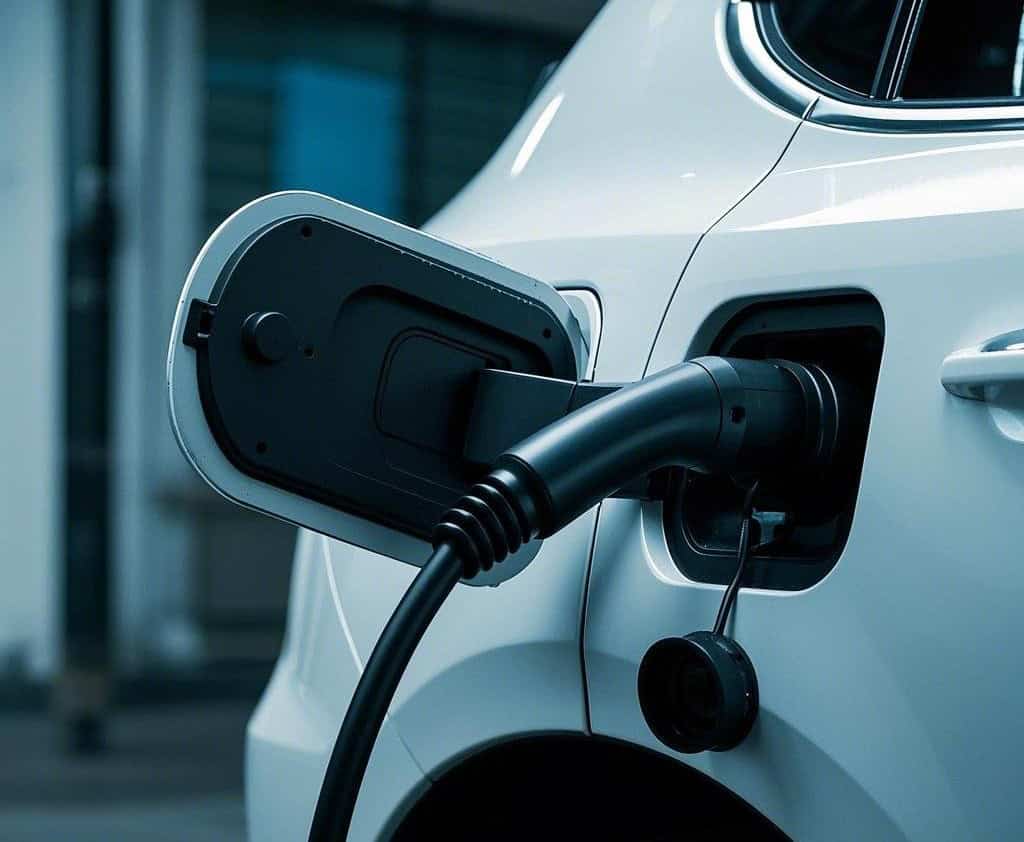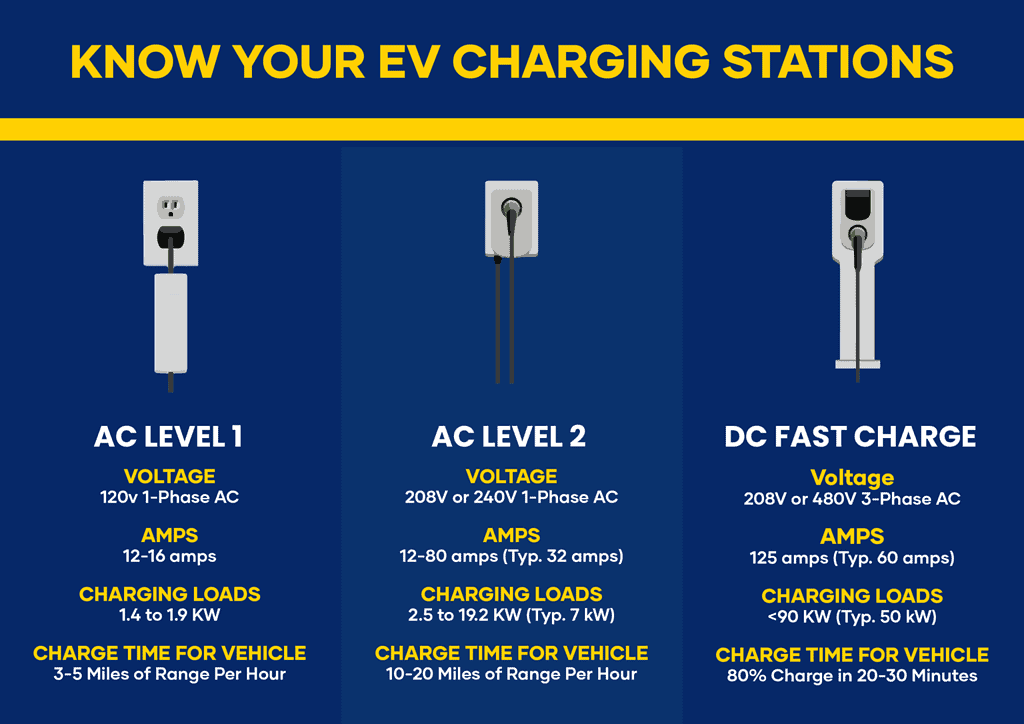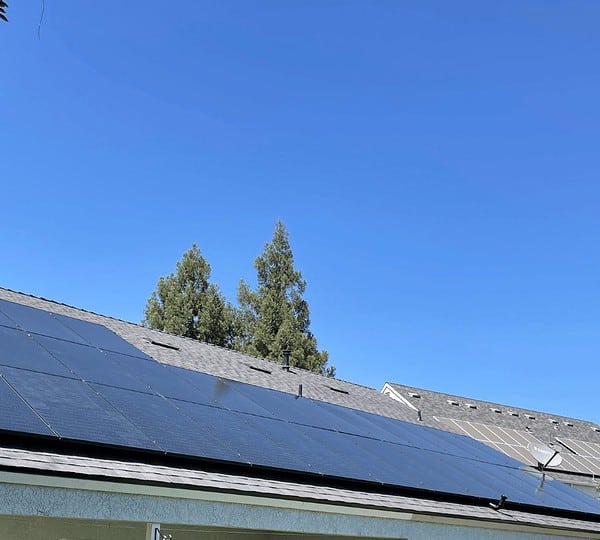
Charging Electric Vehicles (EV) With Solar – Everything You Need to Know
Electric vehicles have become supercharged in popularity. Sales in the United States doubled in 2021 and are still on the rise in 2022, so it would be no surprise to see many more EVs on your way to work or the grocery store. If you’re thinking about purchasing an electric vehicle or want to gain more information about them, we will answer many of your questions in this article.
First off, if you’re considering making the switch to an electric car—smart move. With gas prices climbing, there’s never been a better time to look into alternative options. One of the best solutions for EV owners is charging up at home. We know that it takes more effort to find a charging station than traditional gas stations because there aren’t many of them yet. With this in mind, we will tell you everything you need to know about charging your EV with solar panels.

Can I Charge My EV with Solar Panels?
The simple answer is yes, a solar installation will charge your electric car just as it will supply energy for the rest of your home appliances. Solar panels and EVs are a great match and can provide additional energy savings when combined. Our solar systems convert direct current (D.C.) to alternating current (A.C.) —a form of electricity that your home and electric vehicle use. But if you already have a solar system, you only need to install an EV to charge your car.
How Much Does it Cost To Charge My EV with Solar Panels?
There are many advantages to pairing solar panels with your EV. The best being, that solar panels are cheaper than pulling power from the grid. The long-term cost of solar panels is significantly less than buying electricity from the grid. In some cases, the cost of producing solar energy is more than 50% less than purchasing grid power. Installing enough solar panels to meet your house and EV needs will save you thousands of dollars. With warranties to produce electricity for at least 25 years, you’ll be saving long into the future.
What Ways Can I Charge My Electric Vehicle?
When owning an EV, you should know that there are several ways you can charge your car’s battery. Three ways to get the juice that’ll keep your car on the road, each costing different rates: the grid, public charging stations, or solar panels. However, we recommend you find a level 2 EV charger for your home. This option will allow you to charge your EV faster than a level 1 charger (wall outlet). Directly from EvoCharge.com,” Typical charging time for a Level 2 EV charger is around 3-8 hours from empty to full while the average Level 1 EV charger will take 11-20 hours to fully charge.” Therefore Level 2 charging can save you time and save your wallet. Increased charging times can also mean more money spent on energy costs.
Here’s how much each cost:
Grid power at home – $.10 to $40 per kWh – Varies based on location and time; cheapest at night; cost increases over time.
Public charging stations – $.28 to $.69 per kWh – Varies based on location and charging station owner; additional idle fees; some require monthly subscription; cost increases over time.
Solar power at home – Less than $.11/kWh – Levelized throughout the solar panels’ lifetime; additional panels can offset electricity bills.

Is Charging with Solar Right for Everyone?
We know this sounds like a great deal, but you should know that charging with solar is not suitable for everyone. There will be specific cases where charging an EV from solar isn’t the best choice. Suppose your state doesn’t offer net energy metering. If your utility company has high overnight energy prices on a TOU plan, or your roof isn’t suitable for solar because it’s too shaded, you might be better off charging your electric car from the grid.
How Many Solar Panels Does it Take to Charge an EV?
Now you understand the benefits of solar + EV charging. The number of panels required to charge an EV with solar depends on the type of panel, EV battery size, distance traveled, and the amount of sun exposure. Generally, it takes between 5 and 12 panels to charge an EV entirely on solar power.
For example, we will use the Tesla Model Y, Which has an 81 kWh battery and a 330-mile range.
You need three key points to calculate the number of panels required to power your EV. You should know how much electricity your car will use annually, the wattage of the solar panels you are planning to install, and how well your solar panels produce electricity where you live.
First, you need to calculate output per panel, which gets roughly 5 hours of peak sunlight daily. You should know that a solar panel’s energy production depends on its material, size, efficiency, age, and other factors. A typical 350-watt solar panel will produce 350 watts of power.
5 hours of peak sun per day x 350 watts = 1,750 watt-hours or 1.75 kWh per day
Now, calculate how much solar output you need to charge your EV battery. According to the U.S. Department of Transportation, the average American drives about 40 miles daily, and the Tesla Model Y gets 2.1 miles per kWh.
40 miles per day / 2.1 miles per kWh = 19 kWh of electricity per day
Lastly, you need to divide EV usage by solar panel output. With one 350-watt panel producing approximately 1.75 kWh a day and you need 19 kWh of electricity per day, you need 11 350-watt panels to charge your Tesla.
19kWh of E.V. usage/ 1.75 kWh of production per panel = 11 350-watt panels

Other Benefits of Charging Your EV At Home.
If you have an electric vehicle or are planning on buying your first electric car, you are probably thinking about charging your EV at home. Most people still rely on gas to keep their vehicle running, the thought of having your car charged in the comfort of your home sounds like a dream, but it’s not. You’ll find more benefits from charging at home than at a public charging station. It’s convenient, can save you money, is better for your battery, and helps your property increase your home’s value. If you’re still on the fence, here are some other benefits of charging your EV at home.
Home EV chargers are convenient.
- Public electric vehicle charging stations are nowhere near as common or convenient as gas stations. Not yet, anyway. With this comes many problems, like finding a public charging station when out and about. Replenishing the battery on the road can be surprisingly costly sometimes. However, with a home charger, you can plug it in when at home. Charging at home makes driving easier than ever. It gets even better if you upgrade to a level 2 home charger to increase how fast you can charge your EV.
Home electric vehicle chargers give you more control.
- Today’s home car chargers possess technologically advanced settings. These allow you to program to schedule and maintain battery charge according to the specifications of your particular model of an electric vehicle. You can extend the battery life with more control over the charging process. With a smart charging station, you can monitor your charging and check the power charging your car, review statistics from past charging stations, and more. You can easily see how much energy the car uses and calculate how much the car costs to power.
Longer battery life with a home electric car charger.
- Like any other battery, your electric vehicle’s battery will wear out over time. Public charging stations are great but tend to wear the battery down faster. Using a home charging station that you can configure and charge to the optimal amount at the manufacturer-recommended speed will make your battery last longer. Manufacturers also recommend sticking to a 20-80% charge to maximize your battery’s longevity. This tip helps to make sure the batteries cannot be overcharged or will overheat. Ensuring you get a few more drives out of the life of your EV battery.
An EVSE at home can boost your home’s value.
- As electric vehicles become more and more common, homebuyers will be more inclined to choose their home and pay more for it knowing that you already have an EV installed, so they don’t have to install one in the future should they choose to go electric.
How Solar Negotiators can help with solar EV charging stations
Solar Negotiators is here to help you find the perfect plan to install a rapid EV charging station easily and painlessly, allowing you to charge your car faster than a standard wall outlet. We provide a lifetime of solar success for all our clients, with one free panel cleaning per year and monitoring to help you save money. Whether you have solar already installed or not, we can help save you money and time.
Go solar now!
With EV ownership on the rise, it’s becoming more critical than ever for owners to have a way to charge their cars, and solar is a great option. Whether you already own an electric vehicle or may own one in the future, charging your EV with solar energy ensures you save money and live sustainably. Don’t hesitate to contact us here at Solar Negotiators to schedule a consultation with any questions you still need to be answered.

Recent Posts
Reduce your reliance on the energy grid.
Get Solar In
Your Inbox

Refer friends and get paid in-app
The more referrals you bring in, the higher your earnings.
Earn $1,000 for each referral, and bonuses of up to $1,500 once you hit your 10th referral.


